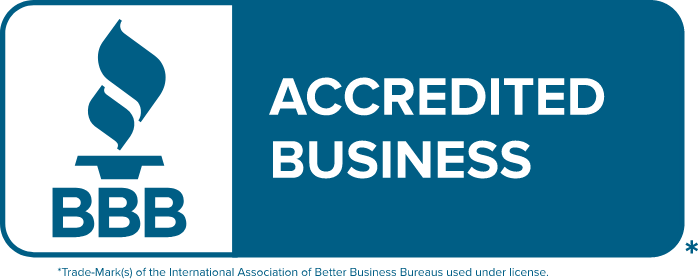What is social media marketing?
It is a type of marketing that takes place on social media platforms. As you would expect, this concept includes a wide variety of activities that have only social media in common. So if you want to promote a blog or organize a recruitment campaign, and if it is done in connection with Facebook or Twitter, it is because of social media marketing strategy.
In fact, most of the strategies adopted on social media are not exclusive or revolutionary – it is simply a matter of adapting old recipes to new types of media.
Should you be doing social media marketing?
Social media marketing has become a must for all kinds of businesses and organizations. A good social media marketing strategy gives you access to a large audience through free or paid advertising, an audience that you can shape and develop yourself.
Of course, in reality, all this is not really “free”. Indeed, someone is supposed to spend some time posting on social platforms, but it is possible to work miracles even by devoting a very limited time to it.
Social media marketing does not work for everyone, and it would be a mistake to see it as an easy and inexpensive way to make money. The most successful strategies take into account the planning of the company and are integrated into its overall strategy. Different enterprise, different approach. But we will come back to it.
The bottom line is that social media marketing offers huge opportunities for most businesses, even if it’s not just about posting a few messages for sales to increase.
How can I benefit from social media marketing?
As we said, there are many strategies, and the results depend on which ones you adopt. Here is an overview of the main benefits of social media marketing.
- Social media provides the business with fast customer service for users around the world.
- It creates new opportunities to sell and promote your products.
- It promotes your brand and retains your customers.
- Allows you to promote your own content in order to reach new users, without breaking the bank.
- Social media communicates your corporate culture and facilitates the recruitment process.
Even if these strategies help your business become more profitable, sales are not going to multiply overnight. Rather, see social media as a solid foundation that your business can rely on at all times.
Cybexo social media expert sums up why this type of marketing is so important “Think of the best known social media, the Internet. I find it hard to imagine someone not betting on the Internet”.

Where to start?
The first thing to do is to define your approach by drawing up a list of objectives to be achieved. As we said before, your approach to social media will depend entirely on your company.
For example, a company that has a product for sale and a charity will develop different approaches. In general, here are the ideas that a business and a non-profit organization might have.
Example of a business
A company has reputable products in physical stores. Their products are highly valued, so that they have experienced organic growth and acceptable follow-up on the networks without being very active there. They decide to use social media to increase both online and physical sales, while promoting new products as they are released.
This involves setting very clear objectives on which to build a social media marketing strategy.
For example, here are some of the actions they could take to get started:
– Regularly publish information on their products in order to trigger sales in physical stores and online.
– Implement targeted paid campaigns in order to increase the number of customers and sales volume.
– Interact with their followers via content specially created to reinforce the already existing follow-up.
– Organize contests and promotions geared towards social media.
Example of a non-profit organization
A well-known charity thanks to large offline public relations campaigns and television commercials. That said, they have never set up communication on the networks, and they start from scratch.
They are therefore involved in social media marketing in order to raise awareness of certain issues, promote events and receive more direct donations.
Here are some options to help them get started. They can:
– Create their communication channels and promote them on other media (email, posts, including links in television commercials and on their website) to quickly build their audience.
– Buy paid ads to increase the number of visitors.
– Create moving, shareable content and start spreading the message organically to attract new followers.
This is just the first draft, but you can see how two organizations need separate strategies based on different goals, expectations and departure situations.
Here is a summary of the main aspects of social media marketing strategy:
Social Media Marketing Strategy
Things that need focus while you start work on strategy:

- Audit your social media presence
- What you shouldn’t post
- Understanding the platforms
- Set up an adapted customer service
- Build a community organically
- Shareable content on social media
- Paid social advertising
- Calendars and programming
Audit your social media presence
First, take stock of your current location. If you have no social channels, that’s okay – the audit is over and you can get started.
Otherwise, whatever your position in the company, you will need to know on which channels you are active.
If some channels work much better, or worse than others?
What types of posts have and haven’t worked in the past?
Is the audience following you relevant to your business?
What if some channels need to be cleaned?
What you shouldn’t post
There are many examples of companies, big or small, who tweet an inappropriate message and bite their fingers. Whether it’s a bad joke of a badly worded opinion, social media can be a double-edged sword if you’re not careful.
There are no exact rules on the type of posts to avoid. Again, it depends on you and your business.
Think about the style of your brand. Nothing prevents you from posting jokes and memes, as long as it is relevant to you and your audience. Social media is sometimes the scene of small provocations, but often the game is not worth the candle.
Sit back and meditate on the following. Make sure that the person writing your posts is fully aware of the reputation the business has built and wants to maintain. Make a list of topics to ban. And do not set in stone the operation of your customer service, in order to keep a good flexibility of reaction.
Also, don’t just spam your followers by sending them links to buy your products. We don’t go on Twitter to shop there, even if that doesn’t mean that we don’t have fun every once in a while.
There is nothing wrong with posting a few sales posts here and there, but think about your message. Sharpen the public’s curiosity about your product rather than putting it under their noses all the time hoping that they will get their credit card out.
Understanding the platforms
We are not going to review all the social media platforms, it’s up to you to find out what works and how. The formulas are manifold, as are the audiences. A good word can hit Twitter, but for LinkedIn, concrete messages based on specific advice are better.
Learn about the algorithms of the different platforms and spend some time on each of them to get an idea of how they work.
Personalize your messages as it should be to get better engagement, higher traffic and sustained interest.
Set up an adapted customer service
Customer service deserves a chapter dedicated to it. Too often, companies undermine their reputation by not taking or making fun of social media complaints.
Social media gives us quick and easy access to businesses. No need to make a phone call, and no need to go to the Post Office. Just go to their Facebook page to complain – and everyone has access to the result. Nothing to do with what was done before.
The relationship with your audience is essential. The complaint may be unfair and unfounded, but you still need to engage with users in a professional manner.
Putting them back in their place would be pointless, and would tend to draw attention to your business for the wrong reasons.
Our guide to customer service on social media marketing strategy will give you more information on this.
Build a community organically
This is one of the most difficult things to achieve if you are not a large, recognized brand. There is no simple method, but rather a panoply of various means.
You will have to be patient.
Take your time and do it properly: you will end up having an audience that really engages with you.
Here are some steps to follow first:
– Create content that people are likely to share and that will be seen by users beyond your network.
– Be a useful referent for people who use your products and services.
Let users know, via other means of communication, that you are present on social channels.
– Talk about the content of others, not just your own, and build relationships with them.
– Always stay interesting or useful.
Although it concerns Justin Bieber fans, the following interview is packed with great tips for growing a social community.
Shareable content on social media
The creation of “shareable content on social media” is a recommendation that often lacks precision.
What is shareable content? What makes it shareable?
To discover some of contagious topics and advice, find a Cybexo social media strategy designer here. In the end, if a blender maker can go viral, the other companies have no excuses.
Paid social advertising
It’s the main course, with companies spending billions of dollars around the world reaching their audiences through Twitter, Facebook and others. Moreover, concerning Facebook, it should be noted that certain organizations which took advantage of their advertising platform to influence the political opinions of users are currently in the spotlight.
The pressure is increasing to make social platforms more open and transparent in their functioning, and as long as you follow the rules and do things properly, everything will be fine.
Paid social media ads are not much different from conventional ads. It is always a question of targeting a specific segment of the population via a message intended for them. The only difference is that you can use the data collected on social media to build 100{2295d0dad657ab99e258985526f2345fbd008bdd6d75544407b1a2019c6b05bc} personalized target audiences.
The subject is too broad to be addressed here, but the tendency of platforms to suppress organic reach means that more and more companies are using paid advertising to present their content and products to the public.
Take the time to examine each platform in detail. They all operate in separate ways, and their costs are different. Either way, they’re a great way to grab the attention of a new audience.
Calendars and programming
Another element to take into account is your frequency of publication. This largely depends on your strategy and the type of positions you will create.
For example, some content publishers publish a lot because they are constantly creating new stories and articles, and they know their followers are on the lookout for this kind of content.
For a business, it’s a little different. It is very possible that you do not produce content regularly, but do not believe that posting on Twitter all day long is an obligation. Users quickly tire of seeing the same press release loop.
If you’ve loaded a large number of posts for publication, be sure to keep an eye on the news to make sure the news of the day won’t make it look out of place or in bad taste.
Finally, adopt a different programming for each platform. For example, posting to Facebook anytime will not work, while users on Twitter are used to posting regularly. The best thing to do is to test and refine to see what works for you and your followers.
We have a very useful list of social media marketing strategy that should be able to help you with this. Check Cybexo social media community for and keep in touch for every update.


